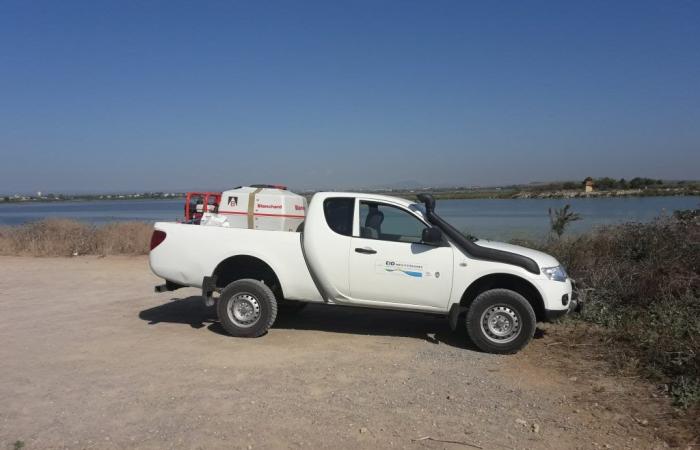Par
Jean-Marc Aubert
Published on
Jul 1, 2024 at 7:27 PM
See my news
Follow Metropolitan
The regional audit office -CRC- Occitanie carried out an audit of the accounts and management of theInterdepartmental agreement for mosquito control on the Mediterranean coast, EID-Med, whose headquarters are based in Montpellier. A spicy 56-page report.
EID-Med is a joint union which manages, on behalf of the departments of Pyrénées-Orientales, Aude,Herault, from Gard, Bouches-du-Rhône and the Occitanie region, mosquito control operations on the Mediterranean coast, from Albères to Bouches-du-Rhône.
The Occitanie regional audit chamber audited the 2018 and subsequent financial years. The EID-Med is authorized, by statute, to carry out mosquito control operations on the Mediterranean coast supplemented by a so-called related vector control mission (LAV). Research and development and the carrying out of studies or works relating to the protection and management of natural spaces complete its activity.
This observation is noted: it is an essential local public operator to fight against mosquitoes which affect the living environment and the development of human activities on the Mediterranean coast. Since its creation in 1959, the main mission of EID-Med has been to regulate mosquito species present in coastal and marshy areas.
1.6 million residents
With a territorialized and mutualized organization, this interdepartmental public establishment to which the Occitanie regionformed in the form of a mixed union, is the only public operator able to operate on a continuous coastal strip bringing together 1.6 million residents permanent on 220 communes.
“For 65 years, EID-Med has made possible the development of seaside resorts and contributed to a better quality of life through its operations to regulate the spread of coastal mosquitoes. The mosquito control campaigns, mainly by larvicide treatment, aim to reduce mosquito densities when they become a source of nuisance for populations. They concern areas that are delimited by prefectural decree,” analyses the CRC.
Invasion of the tiger mosquito
She observes that, “this historic mission is today impacted by theinvasion of the tiger mosquitonative to Southeast Asia, classified among the most invasive species in the world thanks to its adaptability and established in 71 departments.
Capable of transmitting viruses such as the dengueof chikungunya or Zika, it is subject to surveillance by national public authorities. In this context, with its expertise, EID-Med is an important player in vector control to prevent virus diseases potentially transmitted by the latter, in particular. However, since January 1, 2020, the departments, the Occitanie Region and EID-Med are no longer on the front line.
“The role of the mayor in limiting their proliferation is reaffirmed, as guarantor of public hygiene and health, while the decree of March 29, 2019 relating to the prevention of vector-borne diseases entrusts the regional health agencies – ARS – with the missions of entomological surveillance and intervention around new tiger mosquito implantations and suspected cases. The EID-Med has since found itself in a market that has become competitive and subject to the rules of public procurement with regard to the missions assigned to the ARS,” writes the CRC.
She recommends “defining an intervention strategy to better evaluate the service provided to populations” and emphasizes that, “communication on the successes, but also on the difficulties encountered in coastal mosquito control operations must be strengthened. Thus the EID-Med has developed restitution and communication tools on its original and main mission, as well as on the effectiveness of its treatments, particularly since the establishment of the nuisance observatory in 2021 or even the weekly operational bulletin. However, not all of these approaches or actions have been used permanently or even regularly year after year. Above all, this communication must be able to reflect the growing difficulties in carrying out its historic intervention mission and the reality of the level of service provided to the populations.”
The regional audit office regrets that, “despite the return of competence to the State, the EID-Med continues to intervene in matters of LAV in actions of fight, prevention and communication on the tiger mosquito. It therefore mobilizes financial resources which are statutorily allocated to its historic and essential mission of mosquito control of the coastline. The interdepartmental agreement will have to define the conditions for the exercise of this mission, its territory of application and the financial resources that it can devote to it without weakening the core of its business.”
From this situation, the CRC underlines that, “it is therefore an intervention strategy that the EID board of directors must redefine through objectives that it will set, which will also make it possible to assess its overall performance with regard to the satisfaction of the needs of the populations. At present, the level of service provided to the populations is hardly evaluated, nor shared and discussed with the municipalities, departments and the Occitanie region that finance them. The EID-Med financing model no longer allows today to ensure in satisfactory conditions the coverage of the missions falling within its statutory purpose”.
The CRC assures that, “financial balances remain fragile and are conditioned. At stake, in particular, is the ability of EID-Med to control its operating expenses, some of which are due to external factors (aerial treatments, acquisition of biocide) as well as to recover, according to regular rhythms, all of the costs. participation of its members. The terms of the latter are complex and deviate from the precise framework set by laws and regulations. They are not directly linked to the service provided to the populations concerned and are based on a fragile institutional balance. This situation deprives EID-Med of visibility on its financial prospects. It is then forced to use the payroll and the level of commitment to its interventions as adjustment variables.”
And the CRC warns: “In this context, the interdepartmental agreement must set its action priorities, review its economic model and work towards new governance in order to ensure the financial sustainability necessary for the full exercise of its missions.”
The reaction of the president of EID Med
Christophe Morgo, mayor of Villeveyrac, elected from the Department of Hérault and president of EID Mediterranée reacts to reading the final observations report “which highlights the fundamental importance of the historic mission of EID-Med in controlling the proliferation of wetland mosquitoes, a mission that is essential to the economic and tourist development of our vast coastal area. For 65 years, our establishment has been resolutely committed to protecting an area of action housing nearly 2 million permanent residents, thus exceeding the estimates mentioned in this report.”
It also underlines “the financial, technical and scientific relevance of pooling the resources of coastal communities, under the aegis of a public mosquito control operator. This pooling makes it possible to effectively combine Research and Development (R&D) skills with environmental expertise and ethics, with the aim of securing the mission with constant adaptation of operational know-how. Furthermore, the report highlights the challenges posed by the arrival of the tiger mosquito, which generates confusion with our traditional methods of control in wetlands. In fact, these methods, mainly focused on aerial treatments, prove to be ineffective against this serious pest that occurs in urban environments – which in our eyes justifies EID-Med’s interest in it in an operational mode, currently essentially preventive – and potentially a vector of disease.
For Christophe Morgo, “despite ongoing research and experimentation efforts, no proven collective solution currently exists to effectively mitigate the nuisance caused by the tiger mosquito. EID-Med will be led to reconsider its strategies, to explore new approaches and to find its right place in supporting these developments, in agreement with its members.” A report which comes at a time when the mosquito control campaign is in full swing on the Languedoc coast.
Follow all the news from your favorite cities and media by subscribing to My News.






